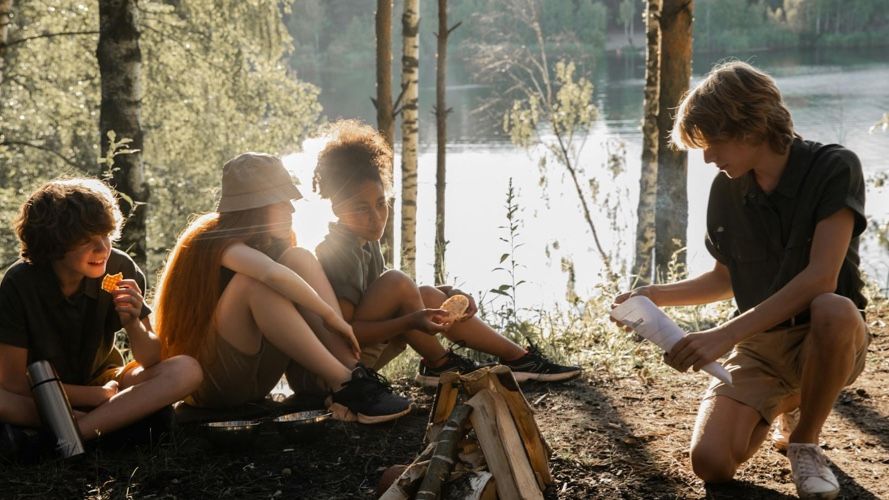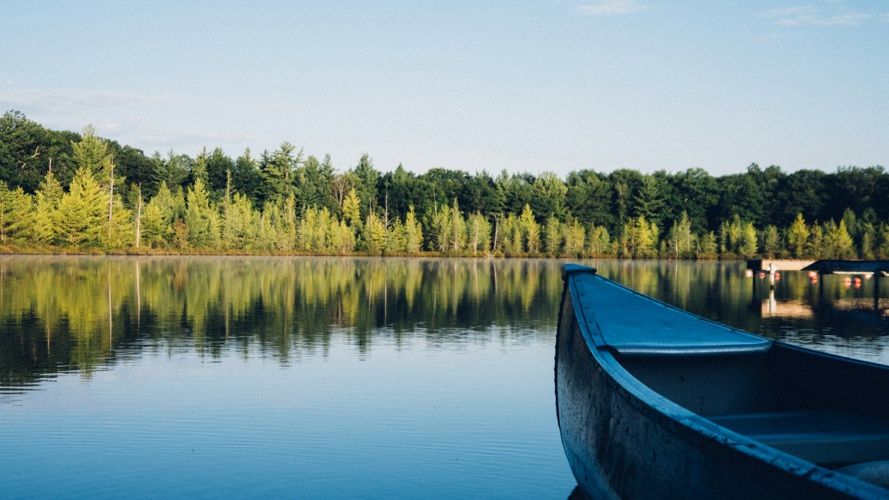Adventure and outdoor camps: day vs overnight guide for first-time parents

Introduction
If your child lights up at the idea of climbing trees, paddling lakes, or making s'mores by the fire, adventure and outdoor camps might be the perfect fit. These camps offer an unforgettable blend of nature, challenge, and fun-and they're available in both day and overnight formats. If you’re a first-time parent navigating summer camp options, this guide will walk you through the key differences between the two so you can confidently decide what works best for your family.
Key takeaways:
- Adventure and outdoor camps are perfect for active, curious kids who love nature.
- Day camps offer flexible, local experiences ideal for younger or first-time campers.
- Overnight camps build independence, resilience, and deeper social bonds.
- Daily schedules, supervision, and packing needs differ greatly between day and overnight formats.
- Choosing the right option depends on your child's age, readiness, and comfort away from home.
Table of Contents
What is an adventure and outdoor camp?
Adventure and outdoor camps focus on connecting kids with nature, fostering resilience, and encouraging outdoor skills like hiking, rock climbing, paddling, and wilderness safety. They're ideal for energetic kids who thrive in less structured, hands-on environments. These camps often include nature-based education, team challenges, and physical adventures in a safe, supervised setting.
For day campers
Day adventure camps typically run for 6–8 hours and are based at local parks, nature centers, or outdoor campuses. Kids return home each evening, making this a great fit for younger children or those not quite ready for overnight stays. Staff ratios are usually small, with counselors trained in outdoor safety and first aid. The experience often emphasizes variety-different activities every day with lots of movement.
For overnight campers
Overnight adventure camps take place in more remote locations and last from a few days to several weeks. Kids sleep in cabins, tents, or lodges and enjoy campfires, stargazing, and full-day outdoor excursions. These camps provide a deeper dive into outdoor learning, offering multi-day hikes or canoe trips, and are ideal for older kids ready for more independence and bonding with fellow campers.
Typical camp activities
Adventure camps pack in high-energy outdoor experiences that help kids grow skills and confidence. Think hiking, ropes courses, archery, fire building, kayaking, orienteering, and environmental science. Activities are designed to be fun but also teach responsibility, teamwork, and safety.
For day campers
Day campers often try multiple short-form activities each day. Mornings might include hiking or team games, while afternoons could focus on crafts or nature skills. The variety keeps things exciting and ensures kids stay engaged throughout the week.
For overnight campers
Overnight campers get to go deeper. Multi-day challenges like backpacking trips, extended canoe journeys, or survival skills programs help build grit and camaraderie. Evenings bring unique experiences like night hikes, storytelling circles, or outdoor cookouts.
Sample daily schedule
Day camp schedule
| Time | Activity |
|---|---|
| 8:30 AM | Drop-off & welcome circle |
| 9:00 AM | Hiking or group games |
| 12:00 PM | Lunch (brought from home) |
| 1:00 PM | Nature skills or crafts |
| 3:30 PM | Cool down & snack |
| 4:00 PM | Pick-up |
Overnight camp schedule
| Time | Activity |
|---|---|
| 7:30 AM | Wake-up & morning stretch |
| 8:00 AM | Breakfast in dining hall |
| 9:00 AM | Adventure rotation: climbing, paddling, or skills |
| 12:30 PM | Lunch & rest time |
| 2:00 PM | Team challenge or nature workshops |
| 5:30 PM | Dinner |
| 7:00 PM | Evening activity: campfire or games |
| 9:00 PM | Lights out |
What to expect as a parent
For day campers
You’ll be managing daily drop-offs and pick-ups, so consider commute time when choosing a camp. Most day camps require you to pack lunch, water, and a change of clothes. Communication is often sent home via daily notes or weekly newsletters. These programs are generally lower cost and provide structure without extended separation-great for first-timers.
For overnight campers
Overnight camps require more preparation. You'll need to follow a packing list-often called an overnight camp checklist and label everything. Communication with your child is usually limited to letters or scheduled updates. Camps trained in homesickness management and camper readiness will support both you and your child through the adjustment.
Benefits of adventure and outdoor camps
Day camp benefits
Day camps offer a lower-commitment way to explore nature. Kids get the benefits of fresh air, group activities, and physical challenges while returning home each night. They're more affordable, and the flexible format works well for families balancing summer schedules.
Overnight camp benefits
The immersive setting of overnight camps fosters deeper friendships, stronger self-confidence, and long-lasting memories. Children often grow more independent and responsible. Being unplugged from technology and surrounded by nature is a bonus for their mental health and focus.
How to choose between day and overnight
If you're torn between the two, consider your child’s personality, maturity level, and prior experiences away from home. Younger kids or those new to camp may thrive in day programs first. Older or more independent children might be ready to take the leap to overnight adventures. Budget and location also play a role.
Still deciding? you can read more about day and overnight camps here:
FAQ
- What age is best to start overnight camp?
- Many overnight camps begin at age 7 or 8, but it depends on your child’s comfort level and maturity.
- Are day camps as safe as overnight camps?
- Yes-both types follow strict summer camp safety tips and are often guided by ACA accreditation or similar standards.
- How can I help my child with homesickness?
- Talk about what to expect, send letters, and choose a camp known for strong camp counselor safety and emotional support.
- What do I pack for overnight camp?
- Use the camp's overnight camp checklist and include extras like labeled clothing, flashlights, and comfort items.
- How do I know if my child is ready?
- Check for camper readiness signs like curiosity, independence, and the ability to follow rules or routines.
Conclusion
Adventure and outdoor camps are a powerful way to build confidence, connect with nature, and make memories. Whether your child is dipping their toes in with a day camp or diving headfirst into an overnight experience, there's a version that fits your family. Keep their interests and readiness at the heart of your decision, and use guides like this to navigate the journey. You're not alone-and you've got this!



